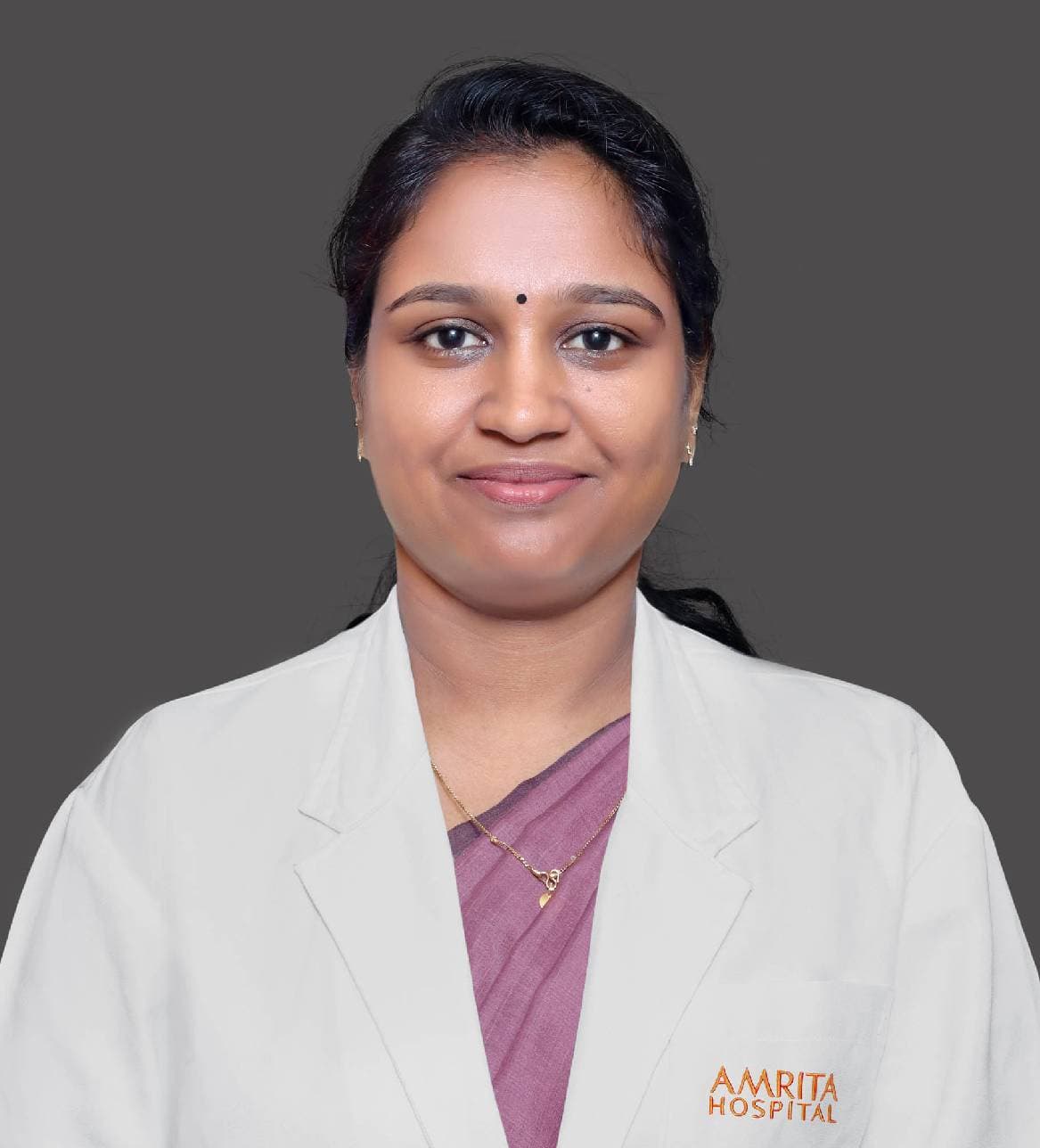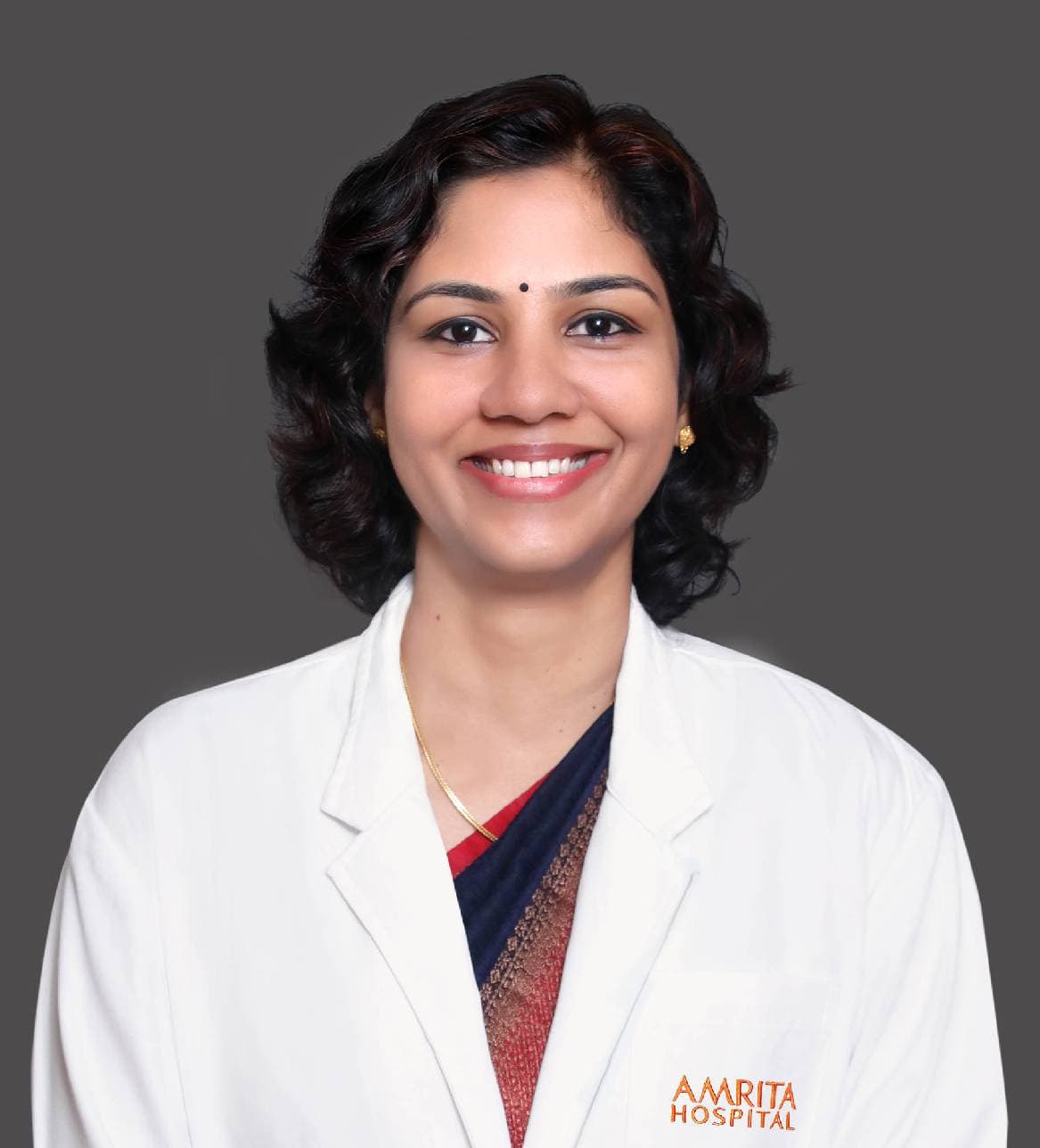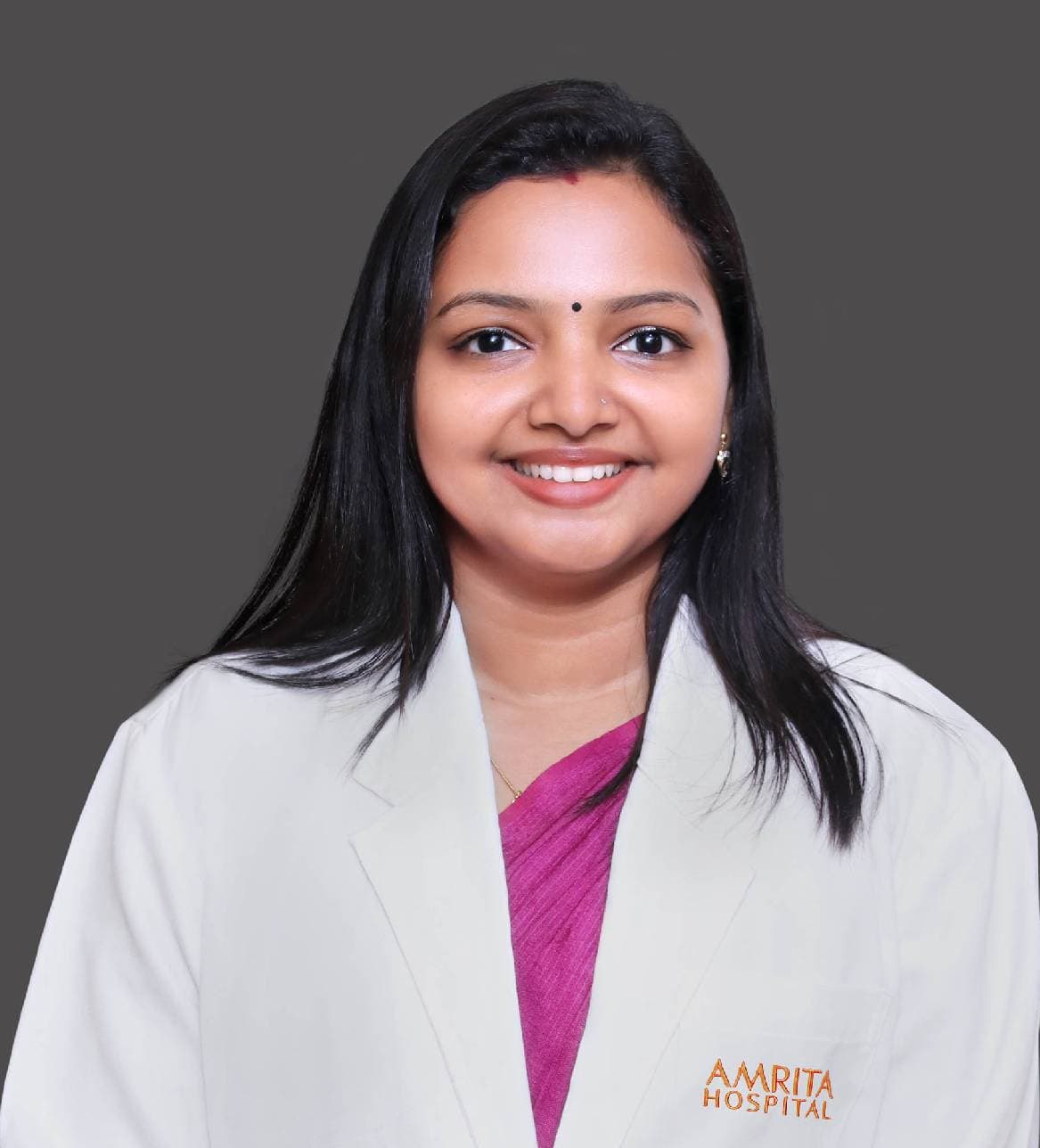Speech Pathology and Audiology Services in Kochi
The Department of Speech Pathology and Audiology is a full-fledged speech and hearing diagnostic and rehabilitation centre at Amrita Hospital that provides services since 25 years. The department offers speech and language assessment and treatment for speech, language, cognitive-communication, voice, fluency, and swallowing disorders across all age groups. The department is also best equipped for newborn hearing screening, audiological evaluation (hearing assessment), audiological rehabilitation (hearing aids, cochlear implant, BAHA), auditory processing, vestibular (balance) assessments, and management. The department consists of a dedicated and well-qualified team of audiologists and speech language pathologists who are experienced in handling various hearing and speech and language disorders.
Contact Us
Phone: 0484 - 6685987/ 0484 - 6685986
Email: [email protected]
Specialties
Audiology
- Diagnostic Audiology
- Rehabilitative Audiology
Speech Language Pathology
- Speech and Language Diagnostics
- Speech and Language Intervention
Diseases treated
Audiology
- Hearing loss (conductive, sensorineural, or mixed)
- Ear infections
- Eustachian tube dysfunction
- Otosclerosis (abnormal bone growth in the middle ear)
- Meniere's disease
- Noise-induced hearing loss
- Presbycusis (age-related hearing loss
- Sudden hearing loss
- Tinnitus (ringing, buzzing, or other noises in the ears)
- Cochlear disorders
- Auditory neuropathy spectrum disorder
- Hyperacusis (sensitivity to sound)
- Vestibular schwannoma (acoustic neuroma)
- Syndromes
- Vertigo and balance disorders
- Auditory processing disorders
Speech-Language Pathology
- Language disorders (expressive and receptive language impairments)
- Autism spectrum disorders
- Attention deficit hyperactivity disorder
- Cerebral palsy
- Various syndromes
- Hearing impairment
- Social communication disorders (pragmatic language impairments)
- Speech sound disorders (speech clarity issues)
- Fluency disorders (stuttering and cluttering)
- Voice disorders
- Cleft lip and palate
- Glossectomy
- Learning disability
- Aphasia
- Dysarthria
- Apraxia
- Stroke
- Parkinson's disease
- Amylotropic lateral sclerosis
- Right hemisphere disorder
- Traumatic brain injury
- Dementia
- Cognitive-communication disorders
- Swallowing disorders (dysphagia)
Features
- High quality and professional patient care for audiology and speech language pathology services
- Bachelor of Audiology and Speech Language Pathology (B.ASLP) Graduation programme
- Significant research contributions to speech and hearing field
- Public education awareness activities
Outpatient services
- Hearing evaluation
- Hearing aid fitting
- Cochlear implantation
- Bone Conduction Implantable devices- Fitting and Programming.
- Tinnitus evaluation and management
- Central Auditory Processing Disorders Management
- Vertigo/balance evaluation and management
- Auditory verbal therapy
- Assessment for cochlear dead regions, Cochlear Synaptopathy and Auditory Neuropathy Spectrum disorders.
- Speech and language assessment
- Speech and language therapy
- Parent training
- Parent counselling
- Voice evaluation and therapy
- Fluency evaluation and therapy
- Clinical swallowing evaluation and therapy
Why choose us?
At the Department of Speech Pathology and Audiology we stand out as an efficient centre dedicated to transforming the lives of children/adults with hearing, speech or language disorders. The department promises high quality and professional services to individuals who are in need of special care with the leading expertise, state-of-the-art facilities, comprehensive patient care and evidence based treatment approaches.
Services Offered
The department is fully equipped to provide comprehensive and multidisciplinary care for patients with hearing (Audiology), and speech language (Speech Language Pathology) disorders.
Audiology
Diagnostic Audiology
Clinical services include:
- Puretone Audiometry
Puretone audiometry is one of the most basic tests to identify hearing threshold levels of an individual enabling determination of degree, type and configuration of hearing loss. It provides basic inputs regarding site of lesion.
- Speech Audiometry
Speech audiometry comprises of tests such as Speech Reception Threshold (SRT), Speech Discrimination Score (SDS), Speech Detection Threshold (SDT), Speech Discrimination in Noise (SDIN) and Performance-Intensity for Phonetically Balanced words (PIPB). SRT and SDT are useful indices for estimating reliability of puretone audiometric thresholds. SDS provides information regarding speech discrimination ability. SDIN and PIPB are reliable tools for differentiating cochlear versus retrocochlear pathology and are very sensitive for auditory nerve lesions.
- Behavior Observation Audiometry
The behavior observation audiometry test is particularly useful for estimating degree of hearing sensitivity in infants. Based on behavioral responses, thresholds are assessed.
- High Frequency Audiometry
High frequency audiometry is useful for early detection of hearing loss in pathologic conditions such as presbycusis, Noise Induced Hearing Loss, ototoxicity and tumours affecting auditory pathway.
- Central Auditory Tests
Central auditory tests comprises examinations such as Dichotic Digits Test and Gaps-in-Noise test. These tests are effective for unraveling pathologies related to the auditory nerve and central auditory system.
- Immittance Audiometry
Immittance audiometry is comprised of tests such as tympanometry, acoustic reflexometry, Acoustic Reflex Latency Thresholds (ARLT), Acoustic Reflex Decay (ARD), eustachian tube function tests and middle ear resonant frequency estimation. Tympanometry helps to identify pathologies related to external ear and middle ear. The facility for multiple frequency tympanometry helps in evaluation of neonates and infants. An estimation of acoustic reflex thresholds provides objective means of differentially diagnosing cochlear versus retrocochlear pathology (up to caudal brainstem). ARLT and ARD are additional confirmatory tools for retrocochlear lesion. Eustachian tube function can be assessed in intact and perforated tympanic membrane cases. Resonant frequency estimation provides additional clues to differentially diagnose middle ear disorders.
- Otoacoustic Emission (OAE) Evaluation
OAE is a useful tool to assess cochlear outer hair cell functioning. Facilities to perform Distortion Product OAE, Transient Evoked OAE and contralateral suppression of OAE are available. Contralateral suppression measurements provides inputs regarding efferent auditory pathway functioning. Infant hearing screening program have also been initiated by performing OAE screening.
- Auditory Brainstem Response (ABR)
ABR is an electrophysiological tool to assess functions of the auditory nerve and brainstem auditory pathway. To estimate hearing threshold in cases like congenital atresia of ear canal, bone conduction ABR is available.
- Auditory Steady State Response (ASSR)
The ASSR electrophysiological tool provides frequency specific information regarding hearing sensitivity. It is also vital for site of lesion estimation of central auditory pathway.
- Middle Latency Response (MLR) and Late Latency Response (LLR)
MLR and LLR electrophysiological measures are useful for assessment of sub-cortical auditory pathway and auditory cortex respectively.
- Vestibular Evoked Myogenic Potential (VEMP)
VEMP is an important tool for assessment of symptoms such as dizziness/imbalance. Facilities to perform C-VEMP and O-VEMP are available. It evaluates functioning of saccule and utricle of vestibular system.
- Videonystagmography (VNG)
VNG is a diagnostic test used to evaluate the function of the vestibular system within the inner ear. This test helps assess balance and eye movements by tracking the movements of the eyes in response to various stimuli, such as changes in head position or visual cues. It's a valuable tool in diagnosing conditions related to balance and dizziness, such as vestibular disorders or certain types of vertigo.
Rehabilitative Audiology
Clinical services include:
- Trial and Fitting of Hearing Aids
Hearing aids of all types with the latest technology from various companies are available. Aids are programmed using either a Hearing Instrument Programmer (HIPRO) or Bluetooth link. For properly setting hearing aid gain and measuring the electroacoustic characteristics of hearing aids, an insertion gain optimizer and hearing aid analyser are available.
- Ear Mould Lab
Hearing aid fitting is only complete if it is coupled with a custom ear mould. The department has a full-fledged, ultra violet ear mould lab with facilities to make both hard and soft ear moulds. Custom made ear protection devices are also available.
- Cochlear Implants
A cochlear implant is a very effective management tool for hearing impairment, particularly with bilateral, profound sensorineural hearing loss. The department is involved in cochlear implant pre-operative evaluation and counselling, intra-operative Neural Response Telemetry, electrical auditory brainstem response evaluation, and cochlear implant mapping.
- Auditory Verbal Therapy
The Auditory verbal therapy is a specilaized therapy program aimed at rehabilitating children/adults with hearing aids/cochlear implant. The therapy focuses on building auditory and language skills through structured activities, games, and exercises, with the goal of enabling individuals to communicate effectively in mainstream environments without relying on sign language or other forms of visual communication.
- Auditory Training
Auditory training is an intervention method that focusses on helping individuals with hearing impairment to use their residual hearing maximally. The training include repetitive listening exercises conducted in hierarchies that stimulates cortical neural activity facilitating long-lasting auditory learning.
- Bone-Conduction Implantable Devices (BCIDs)
BCIDs are primarily suited to people who have conductive hearing loss and unilateral Sensorineural Hearing Loss. The department is involved in determining candidacy, proper fitting and follow up support.
Speech Language Pathology
- Speech and Language Assessment
Speech and language assessment is a comprehensive evaluation of individuals (child/adult) communication abilities that aids in diagnosing a speech and language disorder. The assessment process involves case history, observation and use of standardized test materials that measures specific aspects of speech and language skills. The department has facilities to treat and determine the pathophysiology associated with speech, language, voice, fluency, articulation and swallowing disorders.
- Speech and Language Intervention/Therapy
Speech and language therapy is a specialized form of therapy sessions provided for individuals (child/adults) who are diagnosed to have speech and language disorder. The sessions are typically tailored to the individual specific needs and may involve a combination of one on one therapy, group therapy and home exercises.
- Dr. Speech Software for Diagnostic Application and Intervention
Dr. Speech evaluates vocal function estimates of hoarseness, harshness, breathiness, regularity of vocal fold vibration and glottal closure time. Dr. Speech includes seventy voice-activated video games to provide real-time reinforcement of a client’s attempts to produce changes in pitch, loudness, voicing, voicing onset, maximum phonation time, sound, vowel tracking and phonetic exercise.
- Electroglottograph (EGG)
An EEG is used for monitoring of variations of vocal fold contact. The measures help in the diagnosis of voice abnormalities.
The department also extends the services for general public through conduction of screening camps, workshops, awareness programmes.
Our philosophy
The department is committed in following a patient centered approach in the services and ensures that each individual receives the attention and support they need. The department believe in teamwork and integration, working closely together to address every aspect of a patient's speech and hearing needs. Education, prevention, and rehabilitation are key pillars of the department philosophy, aimed at not just treating conditions but empowering patients to achieve a good quality of life.
Video Gallery
Facilities Available
The department has acoustically treated sound proof rooms for audiological services and spacious rooms for speech language assessment and therapeutic services to offer the following facilities.
- Newborn hearing screening
- Oto Acoustic Emission testing
- Pure tone audiometry (Standard/Play/Free field)
- Speech Audiometry
- Immitance Audiometry
- Behavior Obervation Audiometry (BOA)
- Brainstem evoked response audiometry (BERA)
- Auditory Steady State Response (ASSR)
- Hearing aid trials
- Hearing aid fitting
- Vestibular evoked myogenic potentials
- Videonystagmography
- Middle Latency Response (MLR) and Late Latency Response (LLR)
- Central Auditory tests
- High Frequency Audiometry
- Auditory evoked potentials
- Cochlear implantation
- Cochlear implant mapping
- Auditory Verbal therapy
- Speech and Language assessment (Children/Adult)
- Speech and Language Therapy (Children/Adult)
- Parent training
- Alternative Augmentative Communication training
- Tele therapy/Online Speech therapy
- Bone-Conduction Implantable Devices (BCIDs)
- Auditory training
Fellowship programs and training
- Bachelor of Audiology and Speech Language Pathology (B.ASLP)
The department offers the graduation programme, Bachelor of Audiology and Speech Language Pathology (B.ASLP) since 2011. The B.ASLP program equips students with the knowledge, skills, and hands-on clinical experience necessary to become competent audiology and speech-language pathology professionals. Throughout this four-year undergraduate program, students will delve into various aspects of communication disorders, hearing impairments, and related conditions. The curriculum encompasses a blend of theoretical coursework, practical training, and hands-on clinical experience, ensuring that graduates are well-prepared to meet the diverse needs of their future clients. The academic course is approved by Rehabilitation Council of India.
Additionally, the department also offers a platform for graduate students from various institutes for observer ship/ training. Various research activities are also conducted at the department making significant contributions to the scientific field.
FAQs
Appointments can be scheduled by contacting our department reception desk either through phone or in person. Our staff will assist you in finding a convenient time for your appointment. Phone: 0484 - 6685987/ 0484 - 6685986
Please bring any relevant medical records, previous audiological/speech evaluation reports done elsewhere. Additionally, if you wear hearing aids, please bring them to your appointment.
Yes, we offer tele-therapy services for eligible patients who are unable to attend the in person therapy sessions.
Appointment durations vary depending on the type of service being provided. Initial evaluations may take longer than follow-up therapy sessions. Our staff will inform you of the expected duration when scheduling your appointment.
While we strive to accommodate preferences whenever possible, appointment scheduling is based on availability. If you have a preference for a specific provider, please inform our staff when scheduling your appointment, and we will do our best to accommodate your request.
Yes, we offer screenings or consultations to assess your hearing concerns and determine the appropriate course of action.
We offer a variety of hearing aid options from leading manufacturers. Our audiologists will conduct a thorough evaluation to assess your hearing needs and lifestyle before recommending the most suitable hearing aids for you.
Our department offers comprehensive follow-up care and support to ensure the effectiveness of your treatment plan. This may include regular therapy sessions, hearing aid adjustments, or check-up appointments as needed.
Yes, we offer specialized services for individuals with occupational hearing loss or injuries, including hearing conservation tips, workplace assessments, and rehabilitation services.
Yes, we offer training sessions for family members and caregivers to better understand and support their loved ones with speech and hearing difficulties.
Specialty Clinics
Voice Clinic
The Voice clinic functions in association with the Department of ENT. The clinic evaluates patients with all voice problems. Assessment and intervention is done with the help of equipment such as stroboscope, Dr. Speech software, EGG, Pratt software, etc. Management strategies are planned and direct intervention and home training are provided to the needy.
Treatment
- Hearing Aid fittings
- Tinnitus retraining therapy
- Cochlear Implant mapping
- Auditory Verbal Therapy
- Auditory training
- Ear protection devices
- Speech and Language therapy for developmental language disorders
- Articulation therapy (for reduced clarity of speech)
- Speech Therapy for Cleft Lip and Palate
- Fluency therapy (Stuttering/ cluttering)
- Feeding skills training for young children







